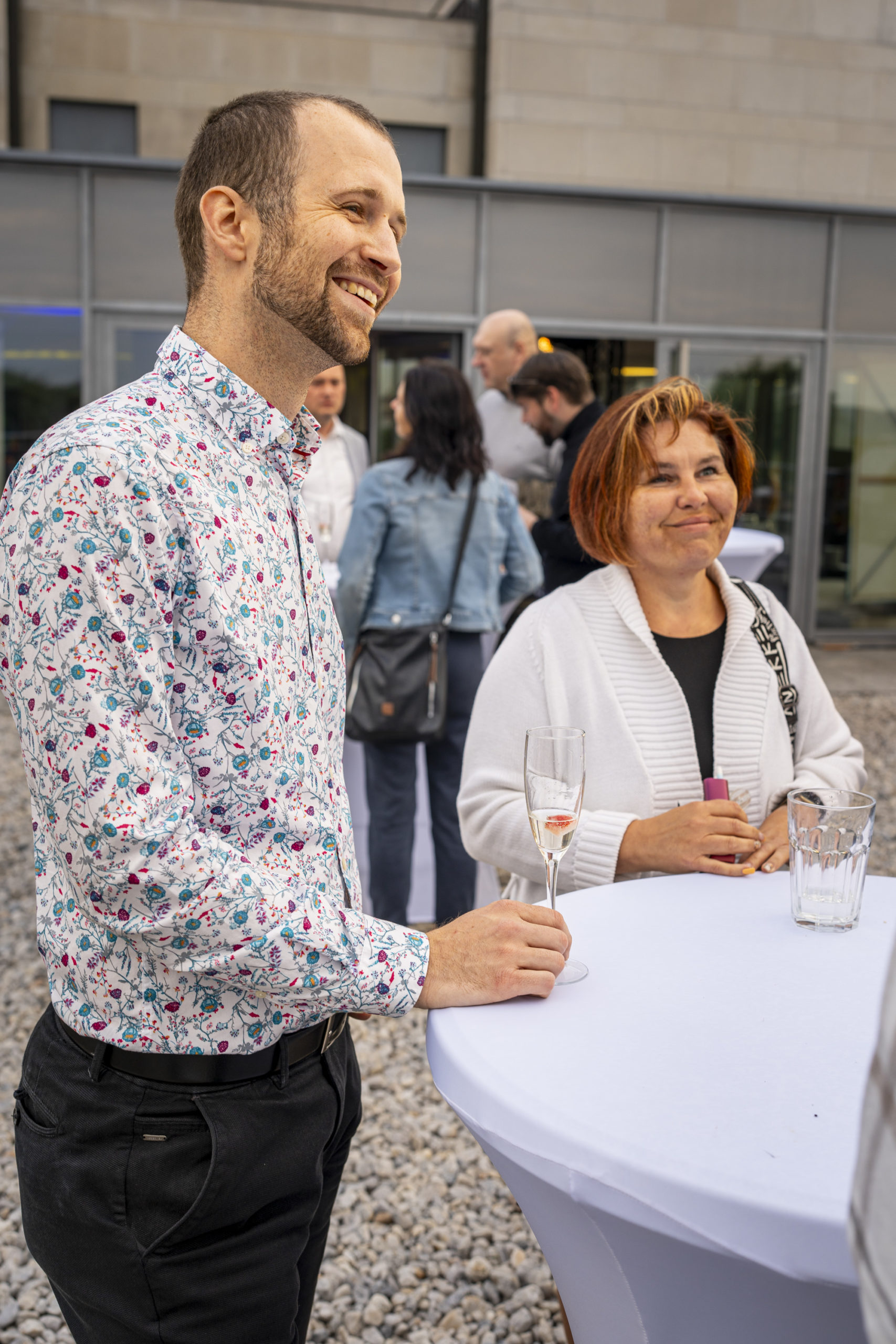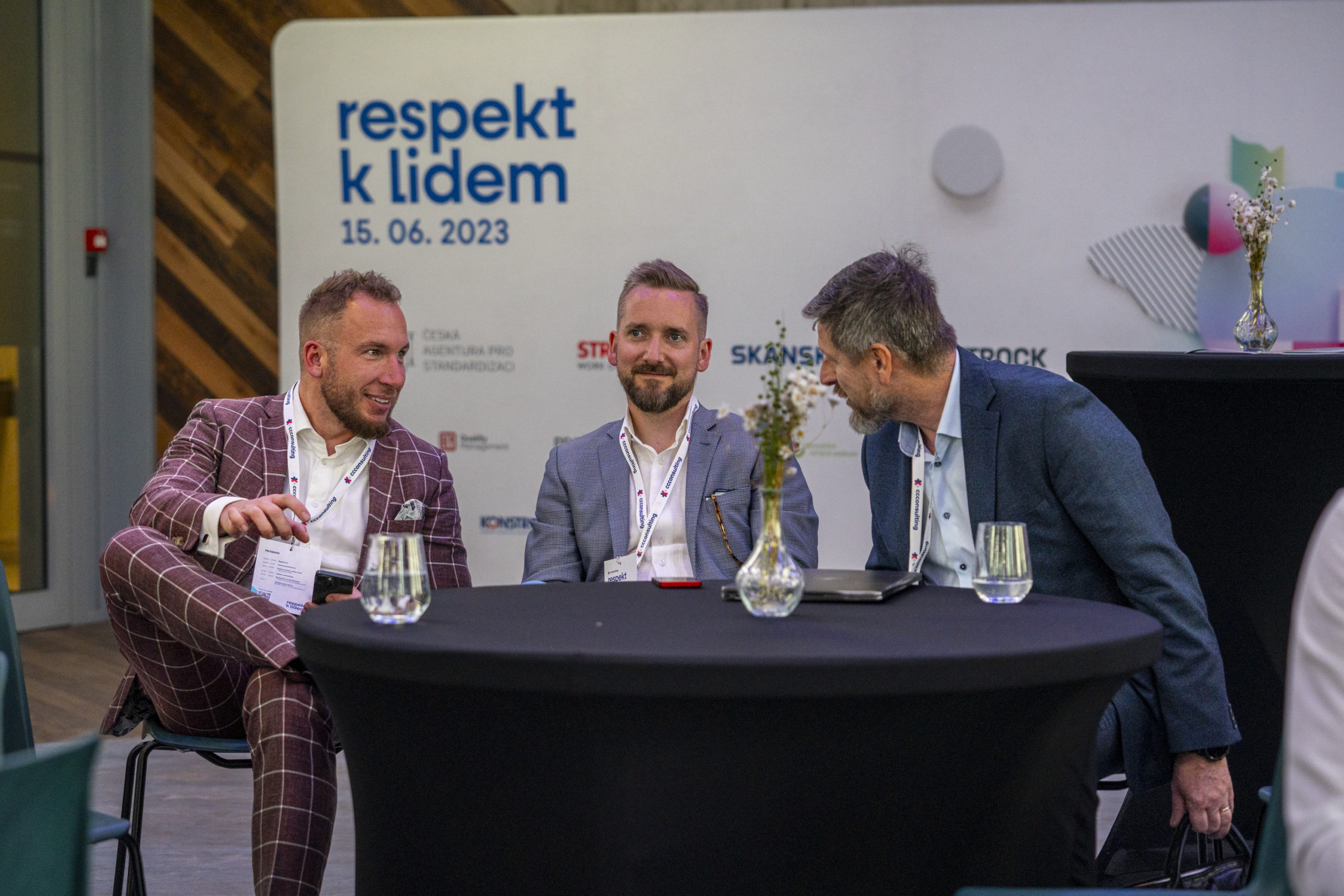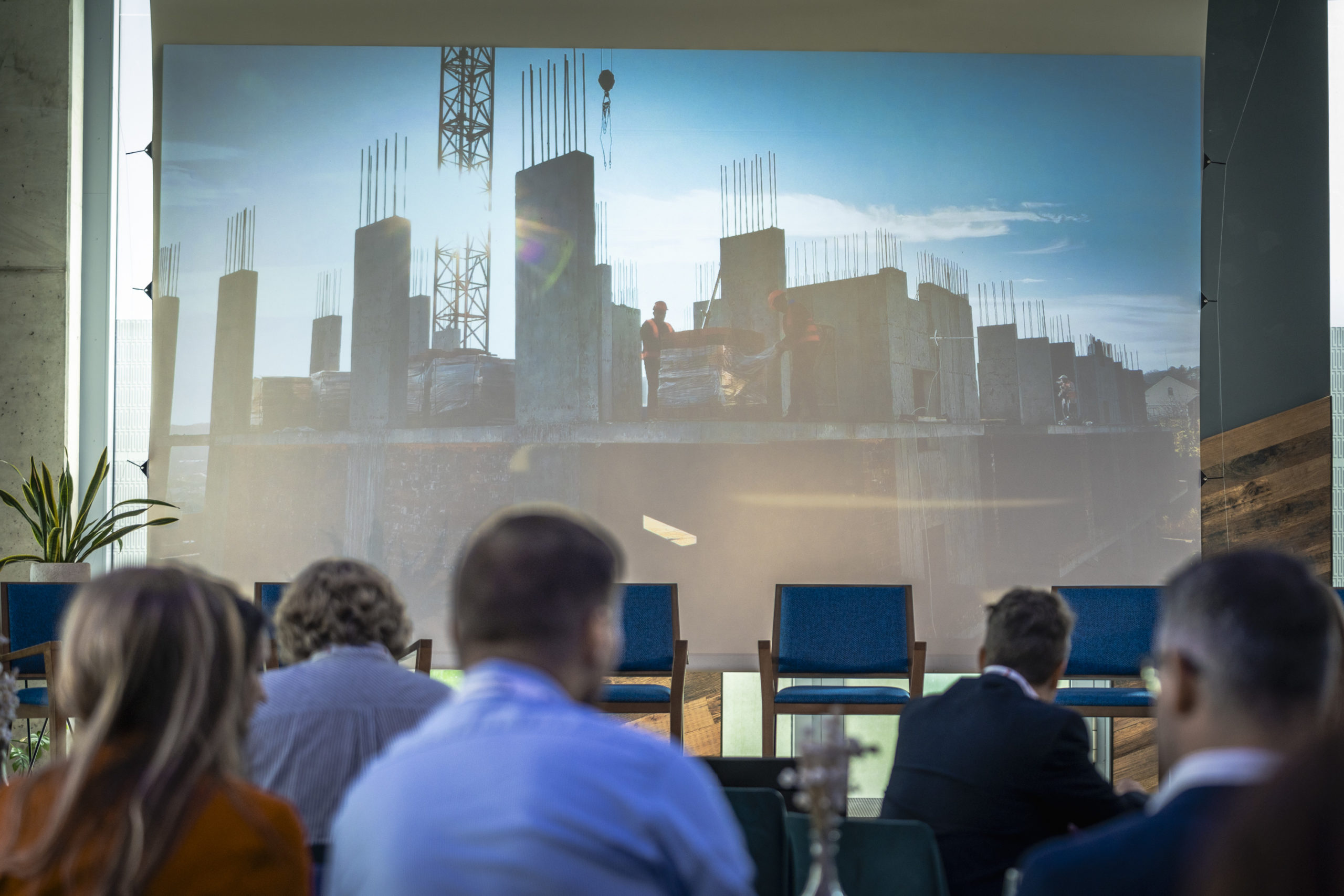On Thursday, 15 June, you would have looked in vain for some of your colleagues in the Prague and Liberec offices. We spent the whole day at the Respect for People conference, which took place in the representative premises of the Spojka Karlín complex. As the conference’s main partner, Liftrock had its “iron in the fire” in one of the discussion panels.
Václav Větrovský represented us in the discussion session entitled “Professional Culture, Ethics and Honour – A Builder’s Heart”. He shared many interesting insights he has gathered during his career. What was all the talking about?
Ethics and Culture in the Construction Industry
The first session dealt with issues of culture in the construction industry and its direction. It included a discussion on ethical rules and their implementation not only in normal company processes, but also, for example, in tenders and contracts. “It’s obvious that we have come a long way since the 1990s. And I believe that at Liftrock we have managed to set many ethical rules and values that contribute to the cultivation of our industry,” said Větrovský.
A representative of the Ministry of Labour and Social Affairs, Adam Gromnica, focused on taking into account the setting of various soft aspects of procurement procedures and their inclusion in the evaluation of public procurement. Leona Gergelová Šteigrová, Deputy Director of the Housing, Construction and Public Investment Section at the Ministry for Regional Development, also offered her view.
The discussion participants agreed that they perceived and positively evaluated the shift in the consideration of issues related to responsibility and ethical principles not only in the awarding of public contracts. At the same time, everyone hoped that soft aspects would play a greater role in decision-making in years to come. This objective was confirmed by a ministry representative.
Level Playing Field, Equal Opportunities?

If responsibility and ethics in the construction industry are addressed, the issue of gender equality in employment and the gender pay gap cannot be overlooked. Unfortunately, the construction industry is a sector where companies often do not even have the opportunity to take this issue into account. However, there was a consensus on equal treatment in the case of gender diversity of candidates for a particular vacancy.
“I can say for us that the gender issue does not play the slightest role concerning candidates. For example, a candidate for one of our positions had just become pregnant, which she also mentioned in the interview. We appreciated such openness. In addition, she brought with her a great deal of knowledge and experience that we were seeking for the position That’s why we didn’t hesitate to hire her,” said Větrovský, describing one of his personal experiences.
Dispute Resolution and Cooperation
The second discussion session at the conference was devoted to an equally important topic called “Cooperation in the Construction Industry – Relationship Agreements and Dispute Resolution”. Here, we heard interesting insights from experts from Germany, the Netherlands and France about contractual cooperation and practical examples of alternative dispute resolution in the construction industry.
Public procurement and construction law expert Joost Merema outlined the new approaches to tender evaluation, which are also being addressed by contractor and construction management teams. Specifically, he mentioned, for example, the ability of team members to accomplish tasks and meet individuals’ ambitions with respect to a project’s goals. Teams should thus be able to capitalise on potential constructive conflicts. Such a conflict is usually welcome when set up correctly, as the subsequent solution can optimise a project and eliminate shortcomings.
Similar Situation in Liftrock Projects
During the networking break, we did not forget to ask about the experiences and opinions of some of the participants. “We see a shift in many areas every year. Our industry has come a long way since the 1990s,” commented Aleš Bednář of Quality Management on the topics of the first discussion session.
“Of course, there are areas where gender equality cannot be implemented at least in the near future because of the structure of people in general. But if we take the company as a whole, I think that the representation of women in our company is not negligible,” said Tomáš Opelka from Proconom on the conference’s topic.
Finally, we would like to thank the organisers for a pleasant meeting and many interesting insights that are beneficial not only for the construction industry and its future, but are also inspiration, for example, for the corporate culture at Liftrock.



